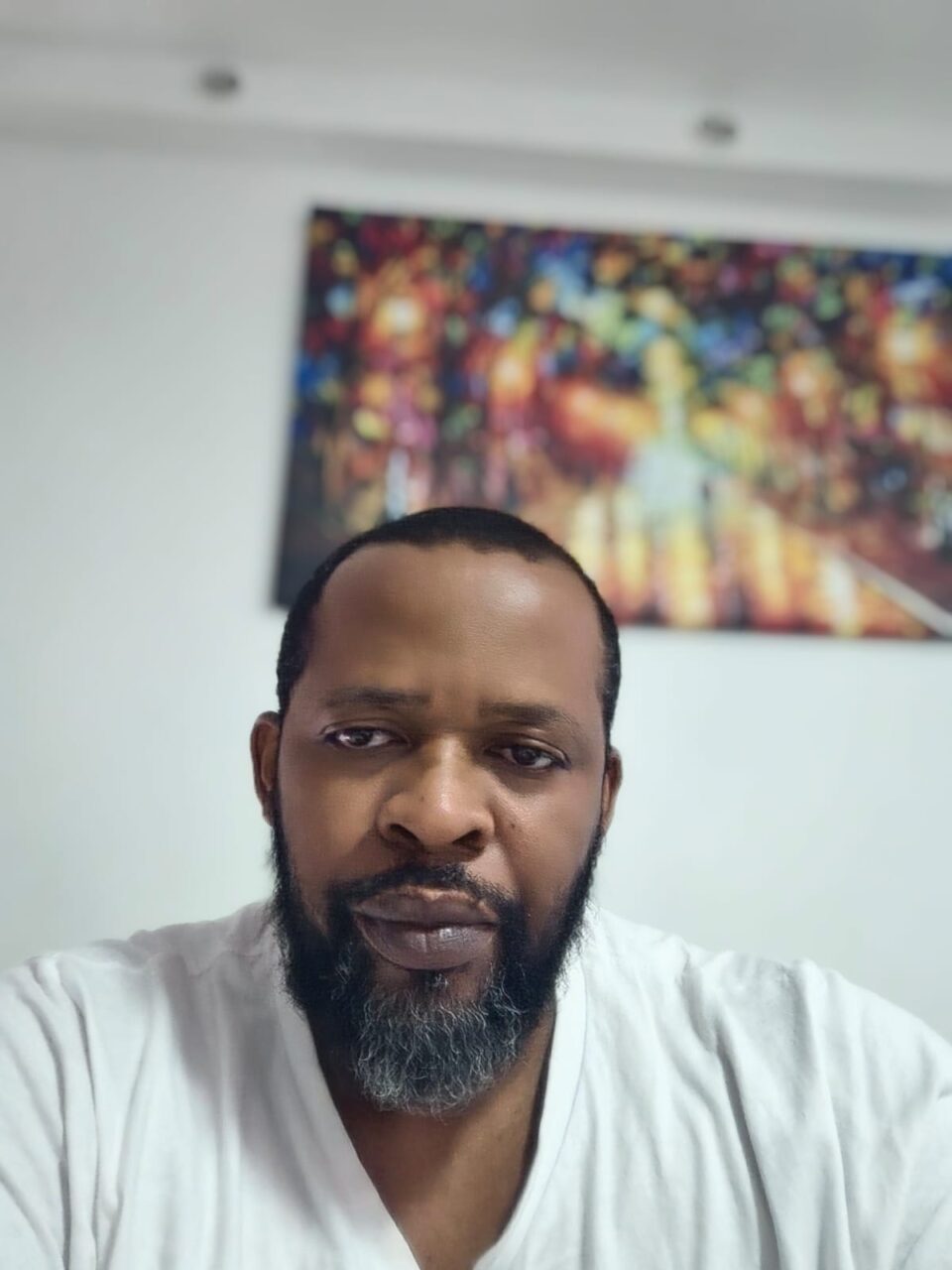The case for remedial secession of the South-East region (Igbo-Biafra) from Nigeria has become increasingly urgent and compelling. Over the decades, the Igbo people have faced systematic and deliberate state-sponsored discrimination, violence, and economic marginalisation that have irreparably harmed their well-being and political future. The doctrine of Responsibility to Protect (R2P) must now be invoked by the international community, given the Nigerian state’s failure to protect its Igbo population and its continued perpetration of policies that aim to depopulate and weaken the South-East.
The situation in the South-East reflects the international legal standards that justify the invocation of R2P and, in parallel, remedial secession as the ultimate means to secure the rights and safety of the Igbo people. Like the precedent of Kosovo, which achieved a unique separation from Serbia under a sui generis context, the South-East region of Nigeria has suffered from unique local factors and special circumstances that warrant international intervention.
State-Sponsored Political and Economic Discrimination: A Calculated Balkanisation of the Igbo People
At the core of the South-East region’s call for remedial secession is the long-standing and intentional political and economic marginalisation of the Igbo people by the Nigerian state. Historically, the Igbo people were one of the three largest ethnic groups in Nigeria, with a vibrant economy, significant political influence, and a rich cultural identity. However, over the decades, Nigeria has implemented policies that have deliberately balkanised the Igbo territories and confined the majority of the Igbo population to only five states in the South-East, while systematically fragmenting other Igbo-speaking territories into neighbouring regions, thereby turning the Igbo people into minorities in many areas that were historically part of the Igbo heartland.
The gerrymandering of boundaries and state creation policies that favoured other regions over the South-East is part of a broader strategy of political disenfranchisement. By restricting the South-East to five states, the Nigerian state has ensured that the Igbo people are underrepresented in the National Assembly, significantly limiting their political influence. This underrepresentation has resulted in fewer senators and members of the House of Representatives from the South-East, reducing the region’s ability to shape national policy and advocate for its economic and political interests.
Moreover, this artificial balkanisation has served to fragment the Igbo identity and weaken the region’s economic power. The deliberate fragmentation has prevented the South-East from benefiting from equitable federal resource allocation, contributing to the region’s underdevelopment and economic marginalisation. This policy of political and economic marginalisation can be described as a form of structural apartheid, in which the Igbo people are treated as second-class citizens in their own country, denied access to the resources and opportunities afforded to other ethnic groups.
Military Violence and Depopulation: The Targeting of Igbo Youths
The Nigerian state’s treatment of the Igbo people has not been limited to political and economic marginalisation. It has also involved the systematic use of violence to suppress the political aspirations of the South-East and to depopulate the region. The heavy-handed military tactics employed by the Nigerian government, particularly in its operations against pro-Biafra movements, have resulted in the deaths, arbitrary detentions, and torture of hundreds of Igbo youths.
Military operations such as Operation Python Dance were ostensibly carried out to maintain law and order in the South-East, but they have resulted in widespread extrajudicial killings and violent crackdowns on peaceful protests and political gatherings. These operations disproportionately target young Igbo men, many of whom are involved in advocating for self-determination or seeking to express their political grievances. This form of violence is not random; it is part of a calculated effort to depopulate the South-East and weaken the region’s political future.
By targeting the youth, the Nigerian state is effectively destroying the future leadership of the Igbo people, ensuring that the region remains politically and economically weak. This strategy of depopulation is reminiscent of other historical examples of ethnic cleansing, where violence is used to systematically reduce the population of a particular ethnic group, thereby preventing them from asserting their political rights or achieving independence.
Kosovo as a Precedent: A Sui Generis Case for Remedial Secession
The situation in the South-East bears striking similarities to the case of Kosovo, where decades of systemic oppression and violence against the ethnic Albanian population culminated in a secession movement that ultimately succeeded with international support. Kosovo’s secession from Serbia was based on a sui generis justification, meaning it was a unique case with exceptional circumstances. The same exceptionalism applies to the South-East region, which has suffered uniquely due to the deliberate policies of the Nigerian state aimed at destroying the political and economic future of the Igbo people.
In Kosovo, the United Nations Security Council passed resolutions establishing international oversight and administration over the region due to the exceptional circumstances of ethnic violence and systemic oppression. This framework for international intervention provided Kosovo with the path toward independence and the protection of its population. Similarly, the Igbo-Biafra Nationalists and the Indigenous People of Igbo Nation for Self-Determination now call on the international community, particularly the United Nations, to establish international administration over the South-East region due to the special circumstances and long-suffering of its population.
Like Kosovo, the South-East region of Nigeria has experienced irreparable harm at the hands of its mother state. The deliberate fragmentation of the Igbo territories, the political and economic marginalisation, and the violent suppression of the region’s youth represent a clear case of state-sponsored oppression. The sui generis nature of the South-East’s plight makes a strong case for international intervention and the establishment of a pathway toward remedial secession.
Responsibility to Protect (R2P): A Call for International Intervention
Given the Nigerian state’s failure to protect the Igbo population and its active participation in their oppression, the doctrine of Responsibility to Protect (R2P) must be triggered. R2P is a global commitment that was established to prevent mass atrocities, including genocide, war crimes, ethnic cleansing, and crimes against humanity. It asserts that when a state is either unable or unwilling to protect its population from such atrocities, the international community has a responsibility to step in and take action.
The situation in the South-East qualifies for R2P intervention due to the following factors:
- Ethnic Cleansing and Depopulation: The deliberate targeting of Igbo youths through military operations, extrajudicial killings, and arbitrary detentions is part of an ethnic cleansing campaign aimed at depopulating the region. This is a clear violation of the Igbo people’s right to life and security.
- Political and Economic Apartheid: The state-sponsored policies of underrepresentation in national institutions, the denial of additional states, and the economic marginalisation of the South-East are deliberate efforts to maintain a system of political apartheid. These policies are designed to keep the Igbo people politically disenfranchised and economically dependent on the central government.
- Failure to Address Grievances: Despite decades of peaceful attempts to address these grievances through political and legal channels, the Nigerian state has consistently refused to implement reforms that would address the systemic discrimination faced by the South-East. This failure leaves the Igbo people with no other option but to seek international protection and, ultimately, remedial secession.
The Igbo-Biafra Nationalists and the Indigenous People of Igbo Nation for Self-Determination therefore call on the United Nations, the African Union, and the broader international community to trigger the Responsibility to Protect and intervene in Nigeria to protect the Igbo population from further oppression and violence. The Nigerian state has demonstrated that it is both unwilling and unable to protect the rights of the Igbo people, making international intervention not only justified but necessary.
Secession as a Remedial Process: The Last Resort for the Igbo People
Secession is recognised under international law as a remedial process in instances where a people have suffered irreparably at the hands of the mother state, and where all internal remedies have been exhausted. In the case of the South-East, the Igbo people have faced decades of state-sponsored violence, political exclusion, and economic marginalisation, with no indication that the Nigerian state is willing to rectify these injustices.
The continued targeting of Igbo youths, the destruction of Igbo properties, and the deliberate fragmentation of Igbo territories demonstrate that the Nigerian state is committed to maintaining a system of political and economic apartheid. The Igbo people’s peaceful attempts to address their grievances through political participation, dialogue, and legal means have been met with violence and repression. As such, the right to remedial secession is not only justified but necessary to secure the future of the Igbo people and protect them from further harm.
The international community has a moral and legal obligation to support the South-East’s pursuit of self-determination, in line with international legal precedents such as Kosovo and the ICJ’s advisory opinion on secession. The failure to protect the Igbo people from systemic oppression and violence makes secession the only viable option for securing their rights and ensuring their survival.
Conclusion: A Call for Action
The Igbo-Biafra Nationalists and the Indigenous People of Igbo Nation for Self-Determination call on the international community to act decisively to protect the Igbo population in the South-East region of Nigeria. The deliberate targeting, marginalisation, and oppression of the Igbo people by the Nigerian state necessitates immediate international intervention. The Igbo people, once a prominent and integral part of Nigeria’s socio-economic and political framework, have been systematically reduced to a state of economic deprivation and political disenfranchisement through state-sponsored policies and violence.
The doctrine of Responsibility to Protect (R2P) must be triggered to safeguard the rights and safety of the Igbo population in the South-East. The international community cannot stand idly by while a state deliberately violates the rights of its own people and engages in policies that amount to ethnic cleansing and crimes against humanity. The ongoing depopulation of the South-East through military violence, coupled with the political apartheid imposed on the region, is a clear violation of the principles of human rights and international law.
International Responsibility and Secession as a Means of Protection
The international community, particularly through bodies such as the United Nations Security Council and the African Union, has a responsibility to intervene where the Nigerian state has failed. The Igbo-Biafra Nationalists and the Indigenous People of Igbo Nation for Self-Determination urge the United Nations to establish an international administration over the South-East, just as it did in the case of Kosovo, to protect the Igbo people from further oppression. Such a measure would not only prevent further atrocities but also pave the way for the South-East to pursue self-determination under international supervision.
Moreover, the principle of remedial secession must be recognised as a legitimate and necessary response to the irreparable harm suffered by the Igbo people at the hands of the Nigerian state. The South-East’s calls for self-determination are not driven by ethnic nationalism alone but by the need to protect the fundamental human rights of a people who have been systematically persecuted. The Kosovo precedent and other cases in international law demonstrate that when a state deliberately marginalises and violates the rights of a particular group, secession becomes a legitimate and justified remedy.
The Moral and Legal Case for International Support
The Igbo-Biafra Nationalists call upon the international community, human rights organisations, and governments around the world to recognise the moral and legal legitimacy of the South-East’s claims. The situation in Nigeria has reached a point where internal political solutions are no longer viable, and external intervention is required to prevent further atrocities. The Igbo people have exhausted all peaceful and political avenues for addressing their grievances, and the continued state-sponsored violence against them makes secession the only means of ensuring their safety and securing their future.
In invoking the Responsibility to Protect, the international community would be fulfilling its obligations under international law to prevent genocide, ethnic cleansing, and crimes against humanity. The failure to act now could lead to further violence and the irreversible destruction of an entire people. The international community must not wait for another catastrophic loss of life before it intervenes.
Conclusion: A Call for Urgent Action
The situation in the South-East (Igbo-Biafra) is a matter of urgent international concern. The Igbo-Biafra Nationalists and the Indigenous People of Igbo Nation for Self-Determination call on the United Nations, the African Union, and other international bodies to take immediate action to protect the Igbo population and to support their right to remedial secession. The Nigerian state has demonstrated, through decades of violence, discrimination, and economic sabotage, that it is unable and unwilling to protect the Igbo people. As such, the Responsibility to Protect (R2P) must be invoked, and the South-East must be granted the right to secede as a means of securing the rights and safety of its people.
International oversight and administration, along with a clear pathway toward secession, are the only viable solutions to prevent further atrocities and to ensure that the Igbo people can live free from persecution and violence. The time for action is now, before more lives are lost and before the Nigerian state further entrenches its discriminatory and oppressive policies against the Igbo people.
Uche Mefor is the Convenor of the Igbo-Biafra Nationalists and the Indigenous People of Igbo Nation for Self-Determination



